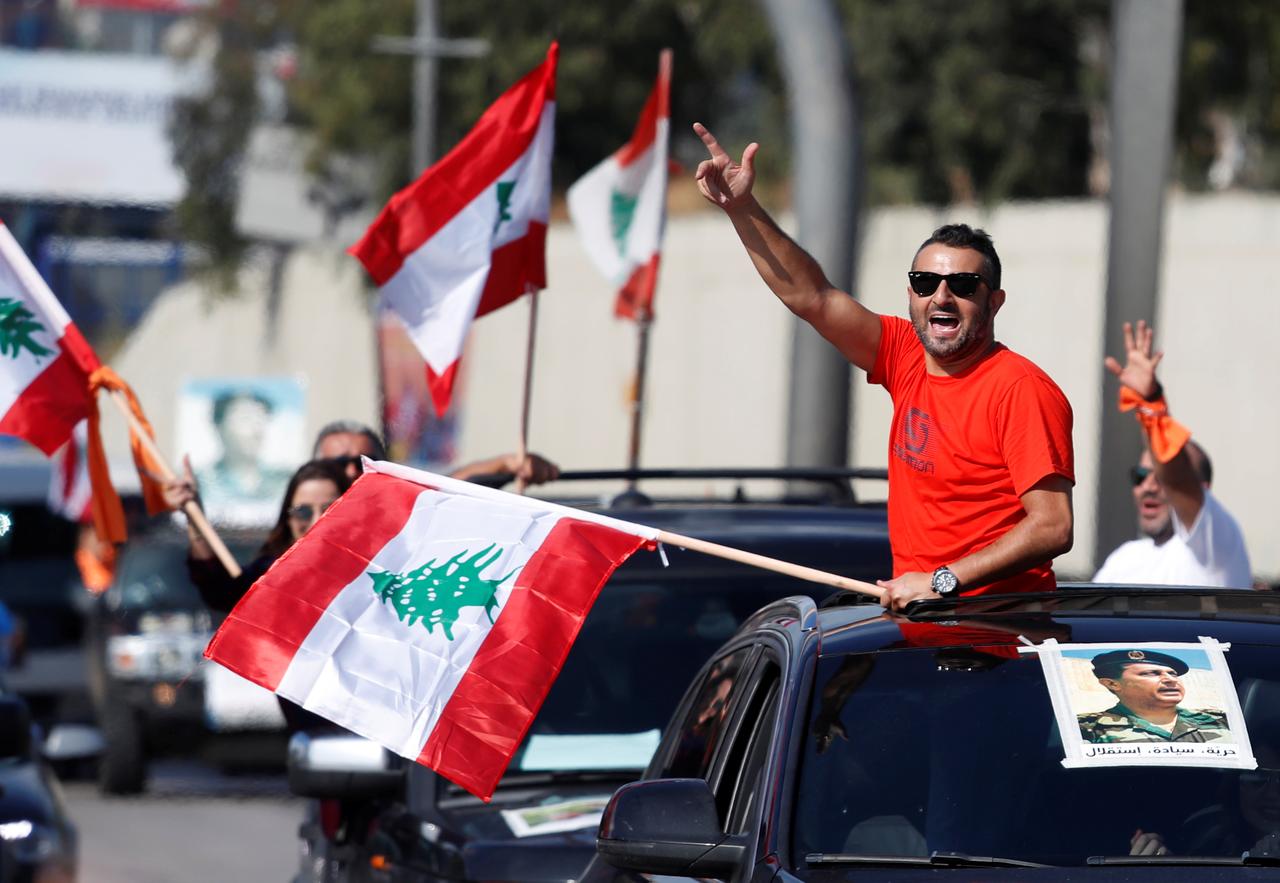Lebanon’s anti-government protesters return to streets after big pro-Aoun rally

By 
Lebanese protesters demanding the overthrow of their country’s elite poured back onto the streets on Sunday in the largest numbers since the government was toppled and hours after opposing supporters of President Michel Aoun staged a big rally.
Prime Minister Saad al-Hariri resigned on Tuesday following unprecedented nationwide protests, deepening a political crisis and complicating efforts to enact badly needed economic reforms in Lebanon.
On Sunday evening anti-government protesters flooded streets in Beirut and north and south of the capital, rejecting Aoun’s attempt to position himself as the guarantor of the protest movement and its anti-corruption drive.
“All of them means all of them,” protesters chanted in central Beirut, a reference to the wholesale removal of an elite they accuse of pillaging the state and steering it into crisis.
Earlier in the day, thousands of Aoun supporters had attended a rally just outside Beirut, some waving his Free Patriotic Movement party’s orange flags, engulfing a main road leading to the presidential palace.
It was the biggest counter punch to the broader wave of demonstrations that have gripped Lebanon since Oct. 17 and which have included Aoun’s removal among a set of sweeping demands.
In a televised speech, Aoun, who must now hold consultations with members of parliament to designate a new premier, called for protesters to unify behind efforts to stamp out corruption, which he described as having become “nested” in the state.
He said a three-point plan had been drawn up around tackling corruption, revitalizing the economy and building a civil state.
George Barbar, who wore a shirt emblazoned with Aoun’s face, said he had driven from northern Lebanon to show support. “If people don’t join hands with the president, there will be no Lebanon.”
Foreign Minister Gebran Bassil, Aoun’s son-in-law and an object of ridicule by anti-government protesters, warned the pro-Aoun rally of “difficult days ahead” and said the country had been “racing against time to prevent a collapse.”
The anti-government protests had largely subsided after Hariri resigned, with smaller groups remaining on the streets and pushing for core demands like the rapid formation of a government led by technocrats to carry out the badly needed economic reforms.
“All that we have gotten so far is the government’s resignation. We still have a long way to go,” said Charbel al-Zaani, an engineer.
“If the new government that is formed isn’t one that the people want, the revolution will return even bigger,” said
BANKS REMAIN CALM
A semblance of normality returned to Lebanon this week, with roads re-opening and banks opening to customers on Friday after being shut for two weeks, though restrictions were reported on foreign currency withdrawals and transfers abroad.
The head of the country’s banking association said the banks did not see “any extraordinary movement” of money on Friday or Saturday. Analysts and bankers have feared a rush on deposits.
The central bank governor said the re-opening did not cause “any disturbance at any bank” and reiterated a pledge that “no formal capital controls are considered”.
Lebanon’s import-dependent economy has been hit by years of regional turmoil and a slowdown in capital flows that has put its foreign currency reserves under pressure.
Hariri’s government has continued in a caretaker capacity until a new one is formed.
Lebanon’s powerful Iran-backed Hezbollah movement, which backs Aoun, has said Hariri’s resignation will waste valuable time in enacting measures needed to tighten state finances and convince foreign donors to release some $11 billion in pledged aid.
The United Arab Emirates said on Sunday it was studying investment projects that were proposed at an investment forum in Abu Dhabi last month but has not yet said whether it would provide aid.
Hariri, who has been traditionally backed by the West and Sunni Gulf Arab allies, said before the protests that the UAE had promised investments and financial aid to his deeply indebted country but that work remained to seal the deal.